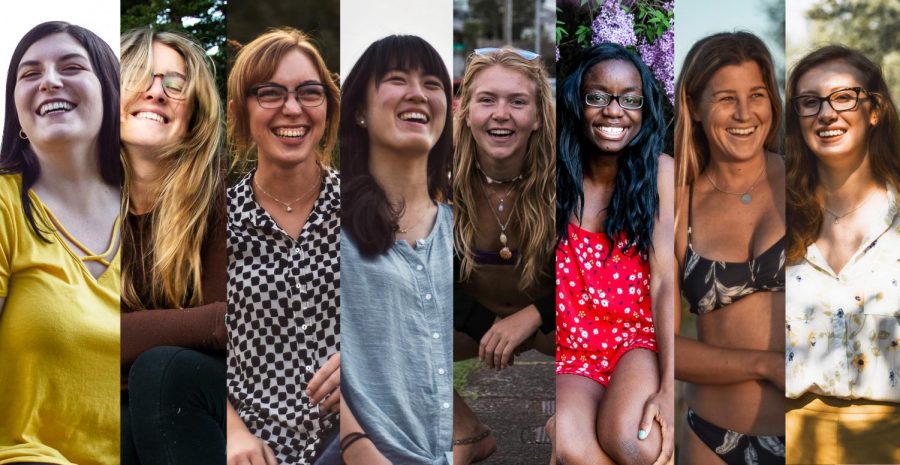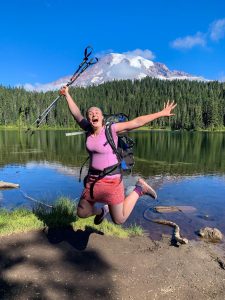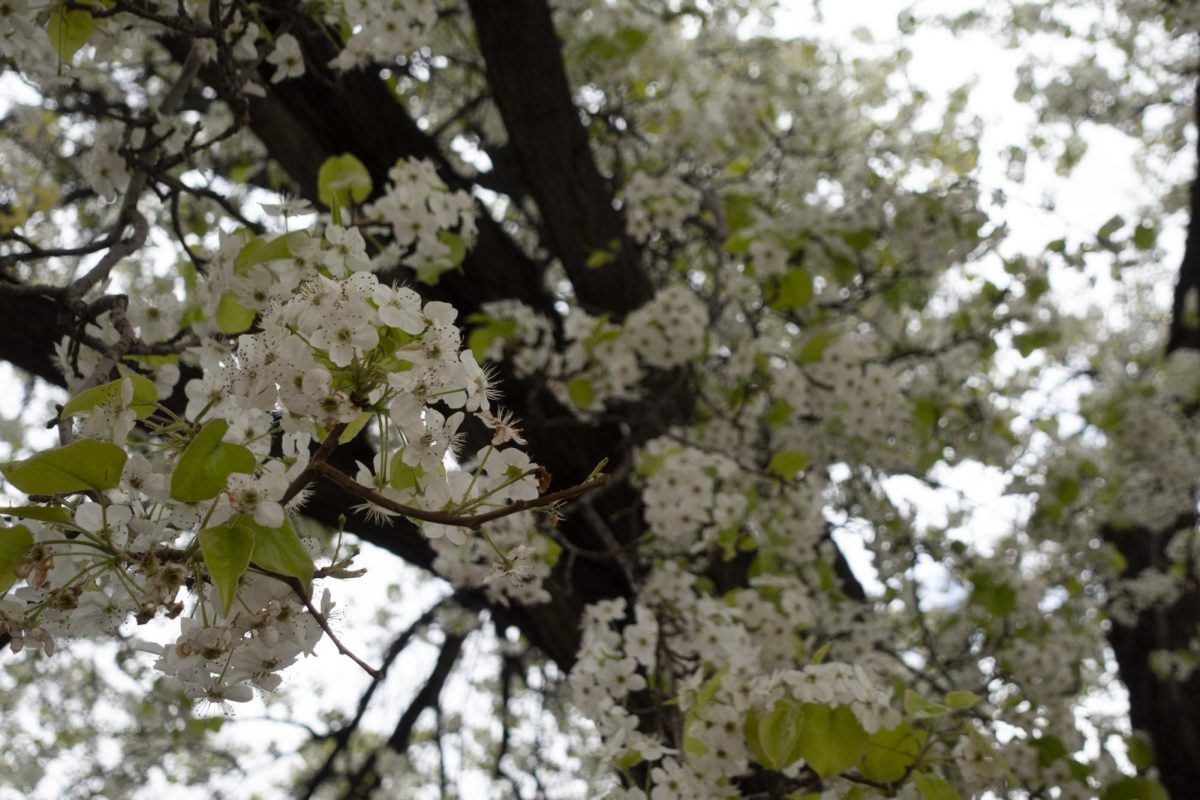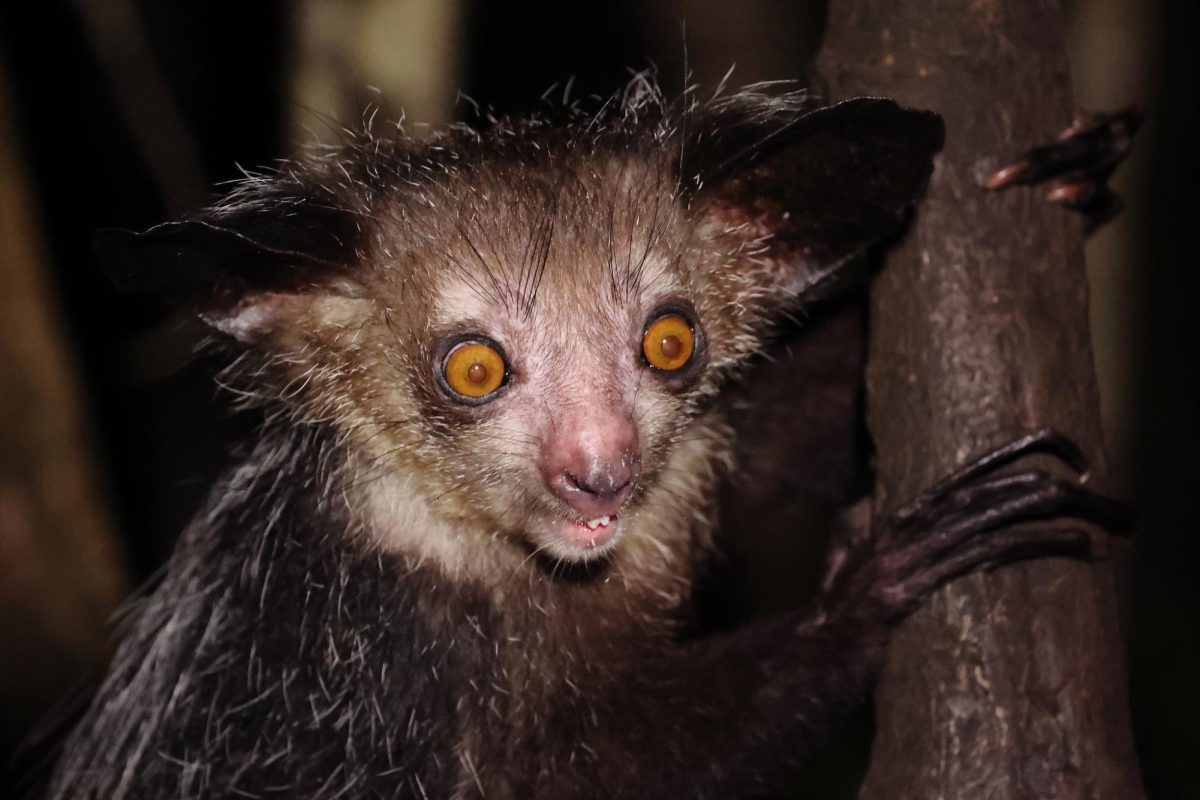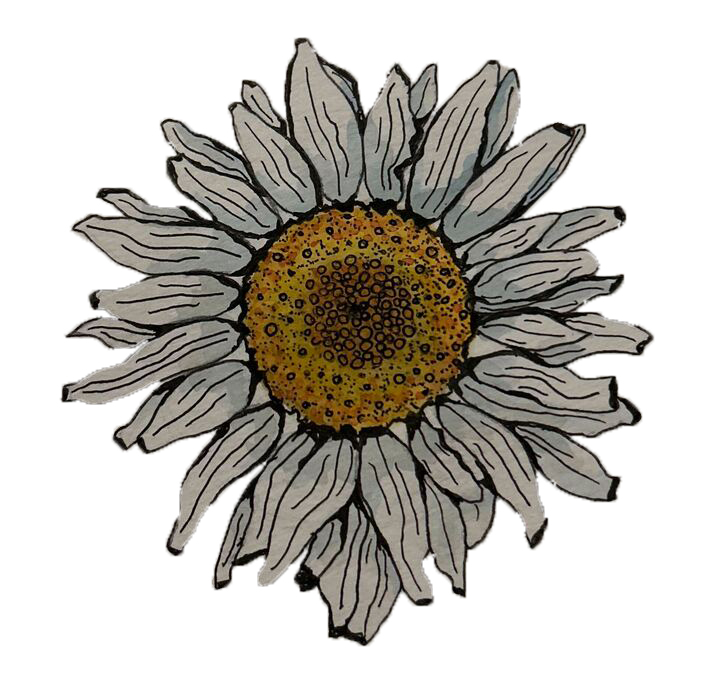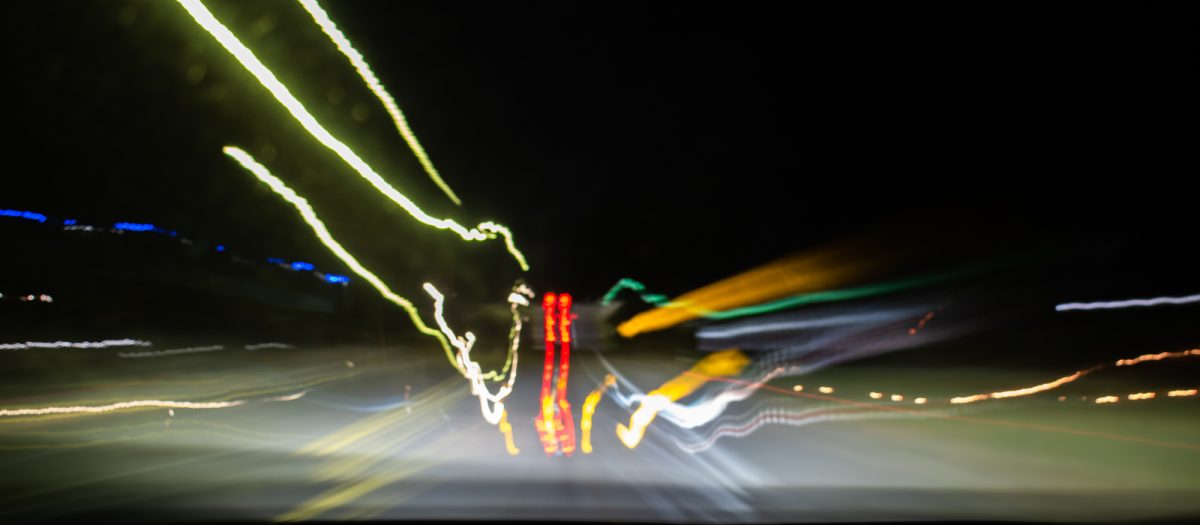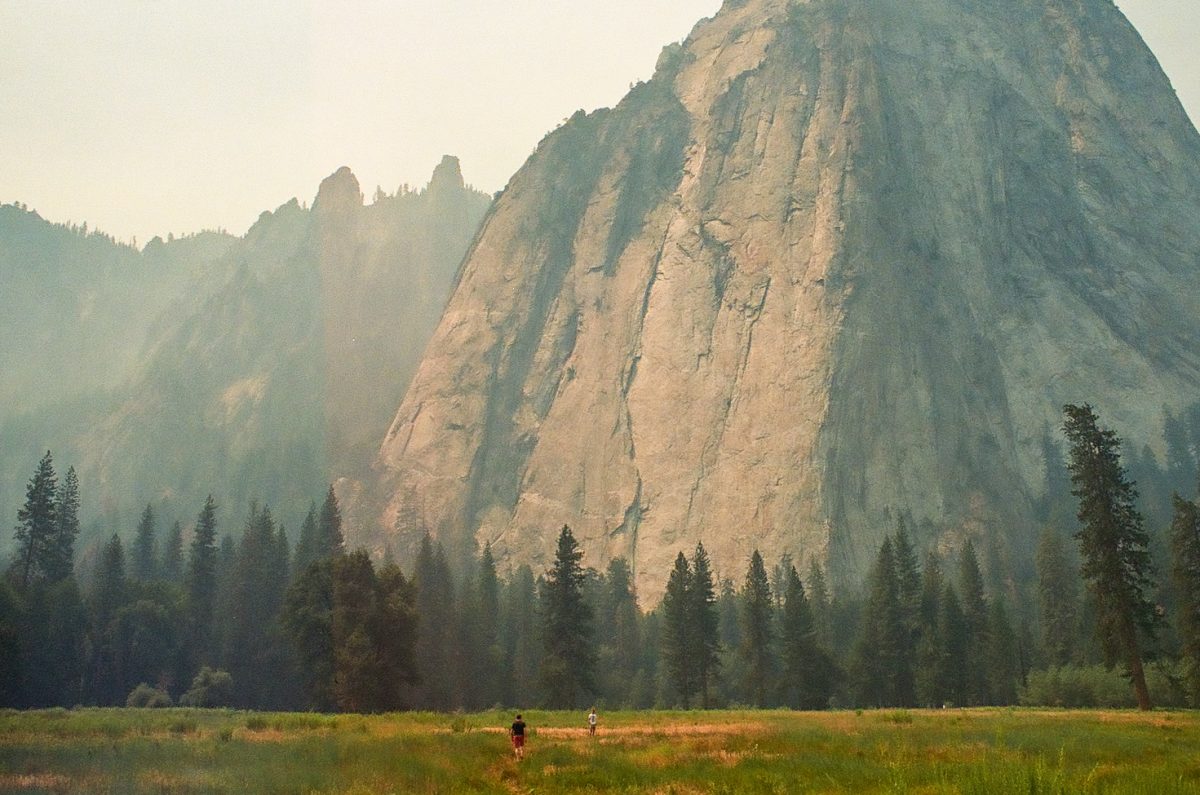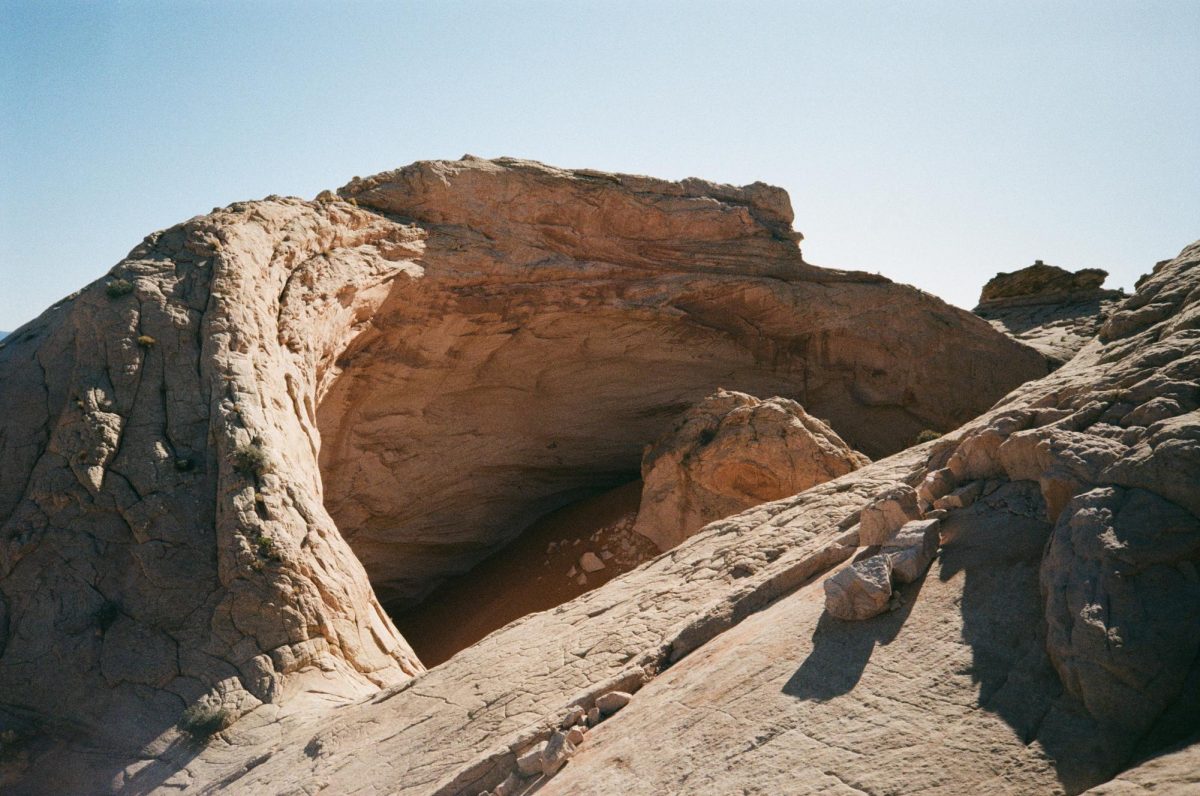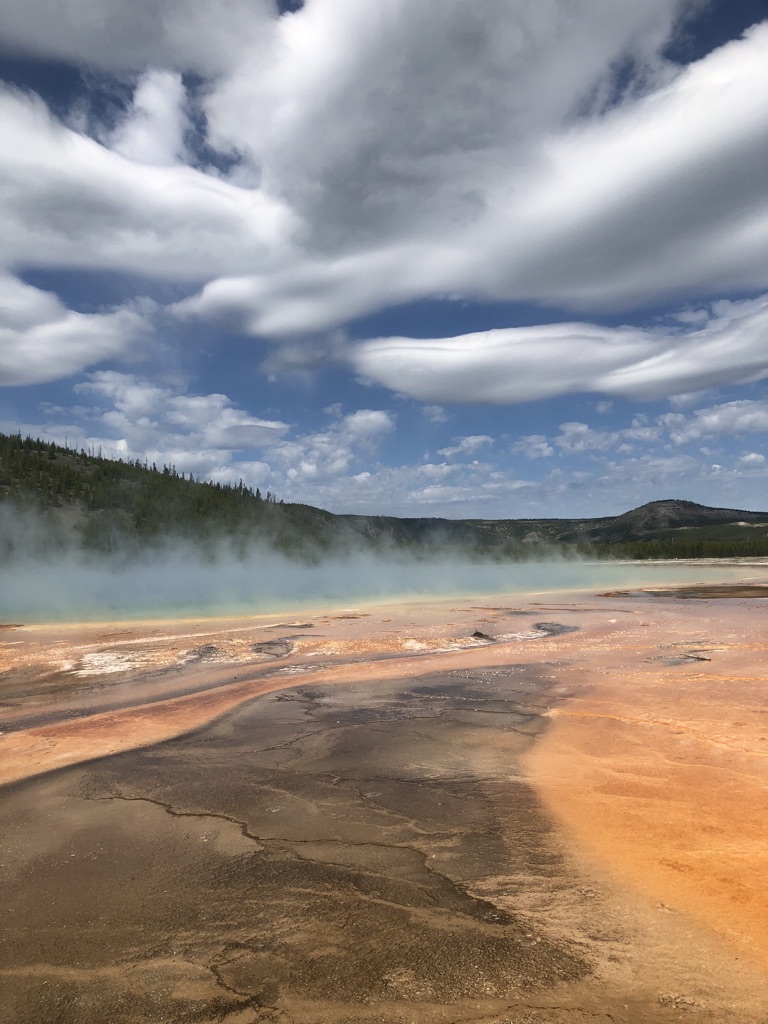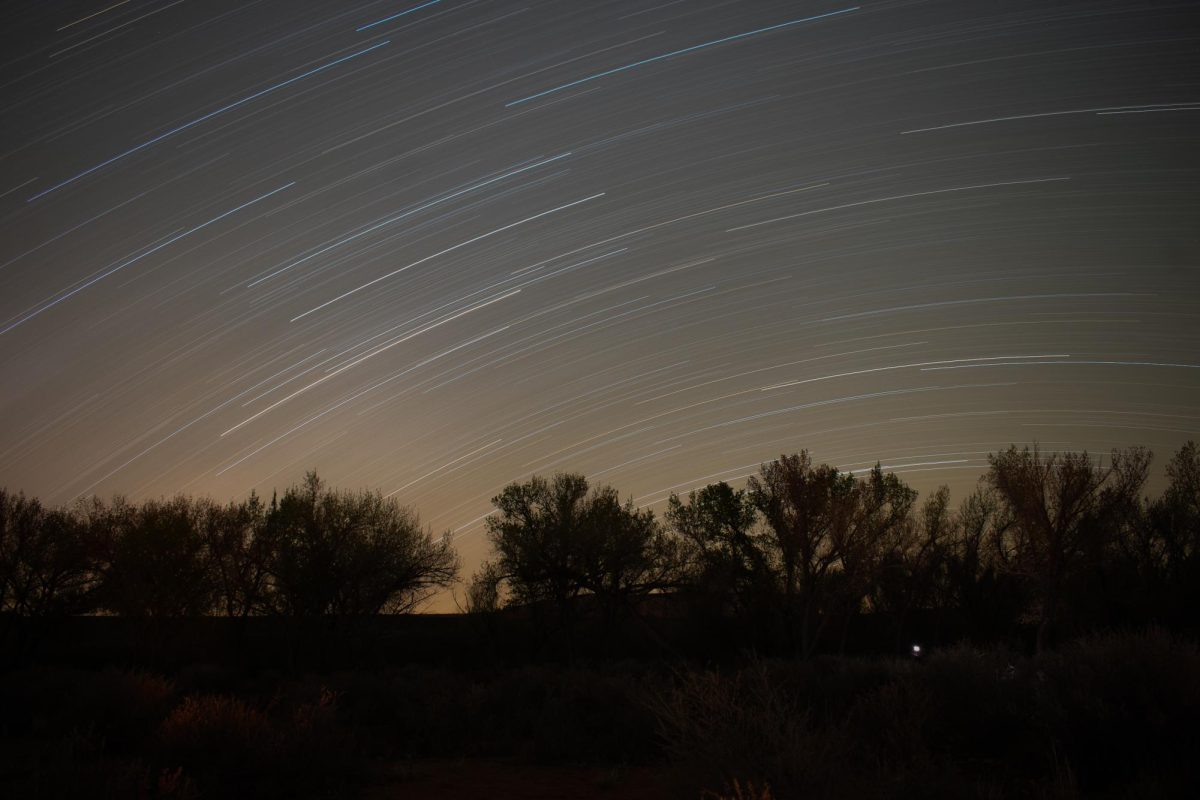She Is My Home: Body Acceptance and Inclusion in the Outdoors
November 23, 2020
A few weeks ago, after a successful summit of Mt. Adams in Washington, my climbing partner and I were on our way back to the car when we started talking about outdoor recreation, the privilege that comes with being able to get outside and what makes the outdoors important to us. At one point, while sitting to the side of the trail to give our knees a break from the relentless descent, she asked me, “What do you like most about being in the mountains? I know they’re really special to you.” A variety of reasons immediately came to mind – their magnificent beauty, their power, the way they can make us feel so small, the physical challenges they present – but one stood out most and has for a long time. I answered, “Because they connect me to my body, and they were the first ones to do so. The mountains are what have taught me to see her in all her inherent worth and reminded me that she is my home.”
As a child, I often found more anxiety in the outdoors than I did enjoyment. Despite my family being really active and encouraging a love of recreation, it often didn’t click for me. While I participated in sports, I was not the most athletically inclined of my friends; I didn’t have boundless energy; I had a soft stomach and sweet kid thighs and competition stressed me out. Societal standards of what a body should look like were certainly a big piece of my anxiety puzzle — laying the basis for years of unnecessary worry. Looking back, that dislike of the outdoors wasn’t because of the outdoors itself, it was a manifestation of negativity held so much deeper — I never felt like I had the “right” body type to be “an outdoor athlete,” so the whole experience was a reminder that I wasn’t good enough. Of course, it wasn’t all negative. I enjoyed so many of the trips my family took and the activities we did, and the foundation laid then is what has allowed me to flourish in the outdoors now. However, even though no one was ever explicitly telling me I wasn’t enough, or that I didn’t fit in, when the only people you see praised for being outside are thin, wiry, muscular and appear to excel effortlessly, it’s hard to escape the overhanging cloud of self-doubt.
It’s important to note that as a white, cis, straight woman, my experience with these feelings in the outdoors is already full of privilege. I had a family that could afford to encourage me to be outside, and I had role models in the professional athletes that at least somewhat resembled me, either in
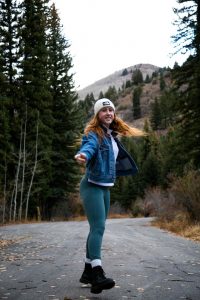
background or appearance. The pervasive whiteness of the outdoors included rather than excluded me, and it would be presumptuous to speak as though my experiences were anything akin to that of people of color, disabled folks or members of the LGBTQ+ community. If you look up the athletes sponsored by your favorite outdoors brand, I’d bet that at least 80% of them are straight, white, thin, able-bodied, cisgender folks. And yes, they’re all fantastically qualified and impressive! But it’s just another reinforcement of the consistent narrative that if your body is different, there’s not a space for you here. You can’t be a fat athlete. You can’t be a BIPOC athlete. You can’t be a trans athlete. The outdoors community is not for you. Representation of diverse bodies, and the lack thereof, influences us whether we’d like it to or not, and the outdoor industry has a long way to go in being inclusive of all bodies.
Who determines if our body is “right” for something? How can we tell ourselves that we, in our physical presence, are inherently right or wrong? Is that not the most damaging thing you’ve ever heard? That mindset completely dismisses the inherent value that each of our bodies holds. I’d like you to imagine going for a walk, and when your friend wants to join, you tell them that their body isn’t right for the activity. That’s painful to think about, right? We would never tell other people we love the things we tell our own bodies because we know it’s hurtful, and ultimately just not true. You don’t need to be an expert with the best, most high-end gear in order to be an athlete or even to be able to enjoy the outdoors. Do you move your body? You’re an athlete. Do you move your body outdoors? You’re an outdoor athlete. That’s all there is and all there should be to it.
As I got older, that self-consciousness began to fade with maturity, but it always lingered in the background — like a cold I couldn’t quite shake. I went on hikes and bike rides and backpacking trips; I was a PSIA certified ski instructor, yet I still never believed that I belonged in the outdoor community because my body wasn’t small and visibly muscular. I was experienced and knowledgeable, and I was finding outdoor niches where I started to excel, but the distraction of worrying over what I didn’t like about my physical appearance meant that I was unable to appreciate my actual capabilities. I even shied away from things like rock climbing and trail running because, to me, those especially were sports for tiny people, and I didn’t want to fail or have anyone to notice my body more than I could prevent. It’s painful to think back on what opportunities I held myself back from simply because I did not feel like I was allowed to love my body if she was not small.
By the time I got to college, I had been excited about outdoor education for a while because it was a piece of the community where I really felt at home. Whether as a student or an instructor, learning and teaching allowed me to focus on the experience rather than my own embodiment, or whatever perceived competition I had made up in my head. At one point I was co-leading an all-girls rock climbing trip, and for many of the students, this was their first time. It was amazing to see them excel and laugh and share the joy of the outdoors together, even if they were struggling or feeling challenged. One night I overheard one of the girls talking to her friend about how she didn’t like her arms. “They are really flabby — no wonder I struggled so much today,” she said. Immediately my heart shattered for her, for myself, for everyone who has ever thought their bodies were not worthy of love. The only thing I remembered of her performance that day was being impressed and inspired by her strength and tenacity. I was shocked that she could think that about herself until I realized that I did the exact same thing. I had always done the exact same thing. Why could I feel such all-encompassing tenderness and love for the bodies of others while my own was somehow unworthy of that same care? That moment of realization and reflection was the biggest turning point in the way I talk to my own body.
When I began to give myself permission to treat my body with unconditional compassion, I started to thrive. Now I see the outdoors as a place of reverence, for my body and for the environment. Admiring my body for all the amazing things she can do, rather than how she looks, has changed everything, and the outdoors has been a monumental tool in learning to appreciate my abilities over my appearance. I love the aches and pains that come with an outdoor suffer-fest because they are a reminder that my body is carrying me, holding me, pushing me and keeping me safe. I no longer obsess over what I’m eating because now I look at my body as my home, and to deprive her of the nutrients she requires is damaging — she does nothing but provide for me, so why wouldn’t I nurture her? These things all sound like such simple revelations, but when you aren’t taught to love your body unless it looks one singular way, it feels radical to start believing and acting otherwise.
Perhaps the greatest joy at the intersection of body inclusivity and the outdoors is seeing the rise of athletes who, in decades past, were not given the voice they deserve, simply because of how they look. We have miles to go, but I look forward to when my children are starry-eyed looking up to athletes like Kanoa Greene or Sam Ortiz. If you haven’t heard of Mirna Valerio, she’s a ray of sunshine. Also known as “The Mirnavator,” she is the embodiment of joy and passion in the outdoors. She’s a mom, author, speaker, cyclist, ultra-runner, former educator and cross-country coach in Vermont. As a fat Black woman, she defies all the cultural constructs built around what an endurance athlete looks like. In 2011 she started a blog called Fat Girl Running, in which the first post is entitled: “This Is Not A Weight Loss Blog.” She wrote about her preferred gear, her training ups-and-downs, the joys of being a slow runner and her race recaps. In 2017, REI produced a short documentary profile of her called “The Mirnavator,” and in 2018 she was named a National Geographic Adventurer of the Year. In an interview for that award, she said, “I think that people are really having trouble grappling with the idea that fit comes in many forms and that people can still participate in athletics no matter what kind of body they have. I want to continue sticking my big ass into places where people think I don’t belong. That has been the nature of my life—I’m going to do it and I’m going to do it proudly.” Valerio is an icon. She takes up space and radiates joy in moving her body in the outdoors, in an arena where very few others look like her.
Wild and Weightless is an organization that is working at the forefront of dismantling weight stigma in the outdoors. Founded by Kristen Ales, MA, LCPi, Wild and Weightless hosts outdoor adventure trips that foster a supportive environment, encouraging participants with bodies of all sizes to celebrate what their bodies can do rather than what they look like. The resources provided on these trips and in Ales’ therapy practice allow those who have been affected by disordered eating, weight stigma or negative body image to find confidence in their abilities at all levels, heal the relationship with their bodies and step into their power in life and in the outdoors.
When I have a negative thought about my body, I remember all the steps she has supported, every mile she has carried me and every outdoor adventure I’ve loved, all because of her. I’m not in the mountains to conquer my body by making her smaller or proving her worth to others. I’m there to practice unconditional respect and reverence for her, and for the mountains that challenge her.

